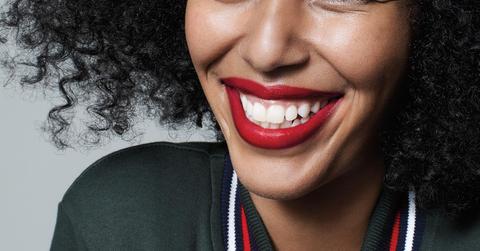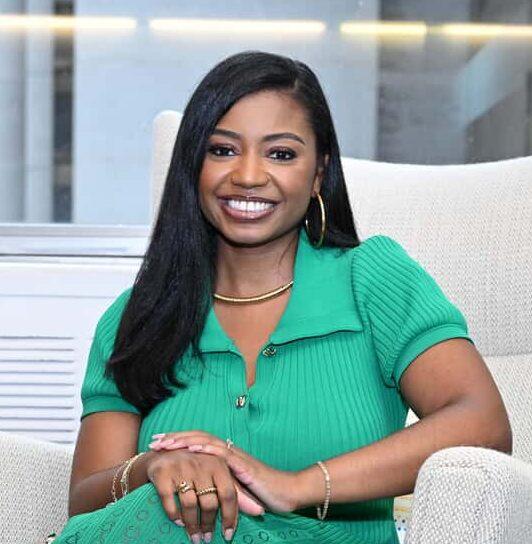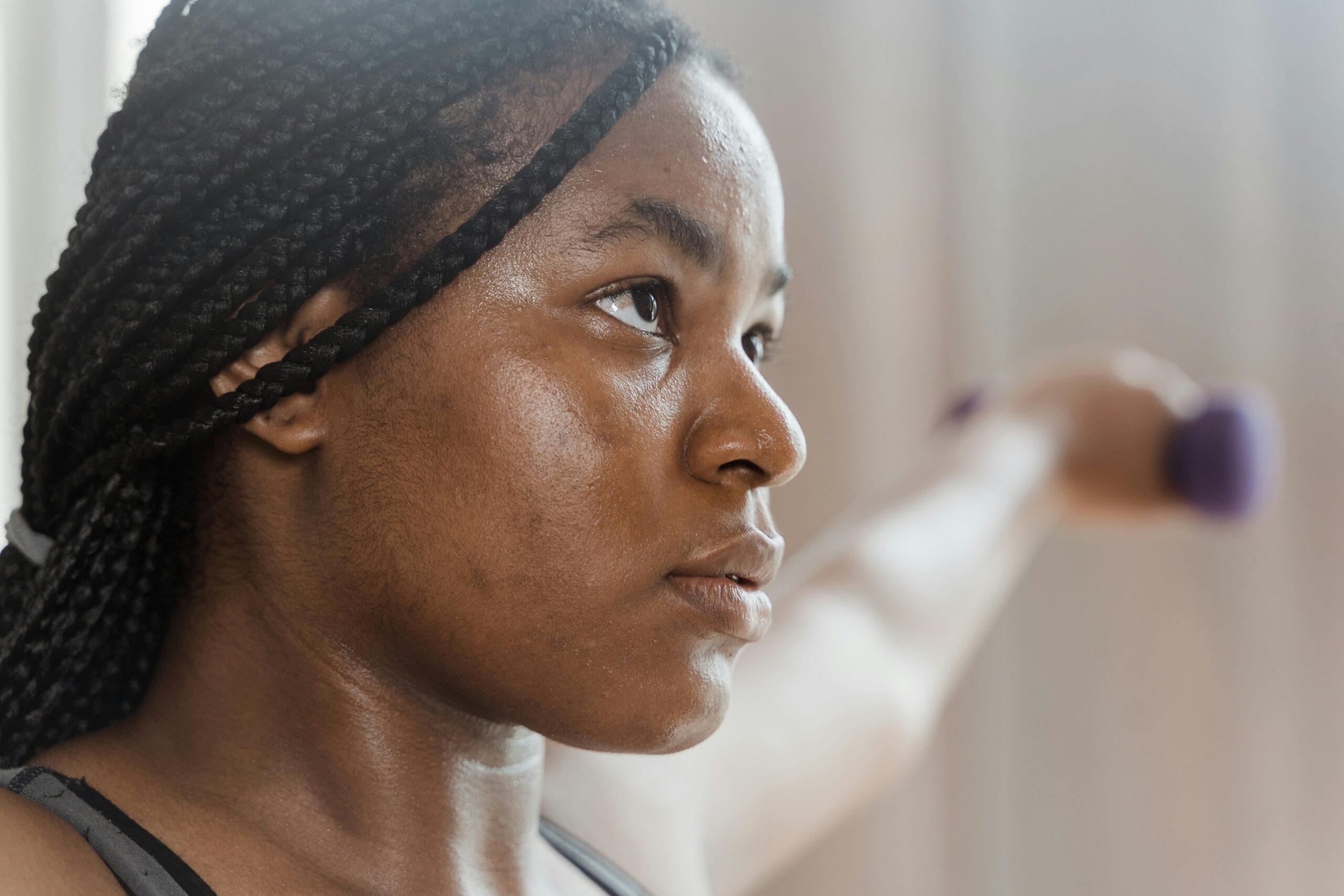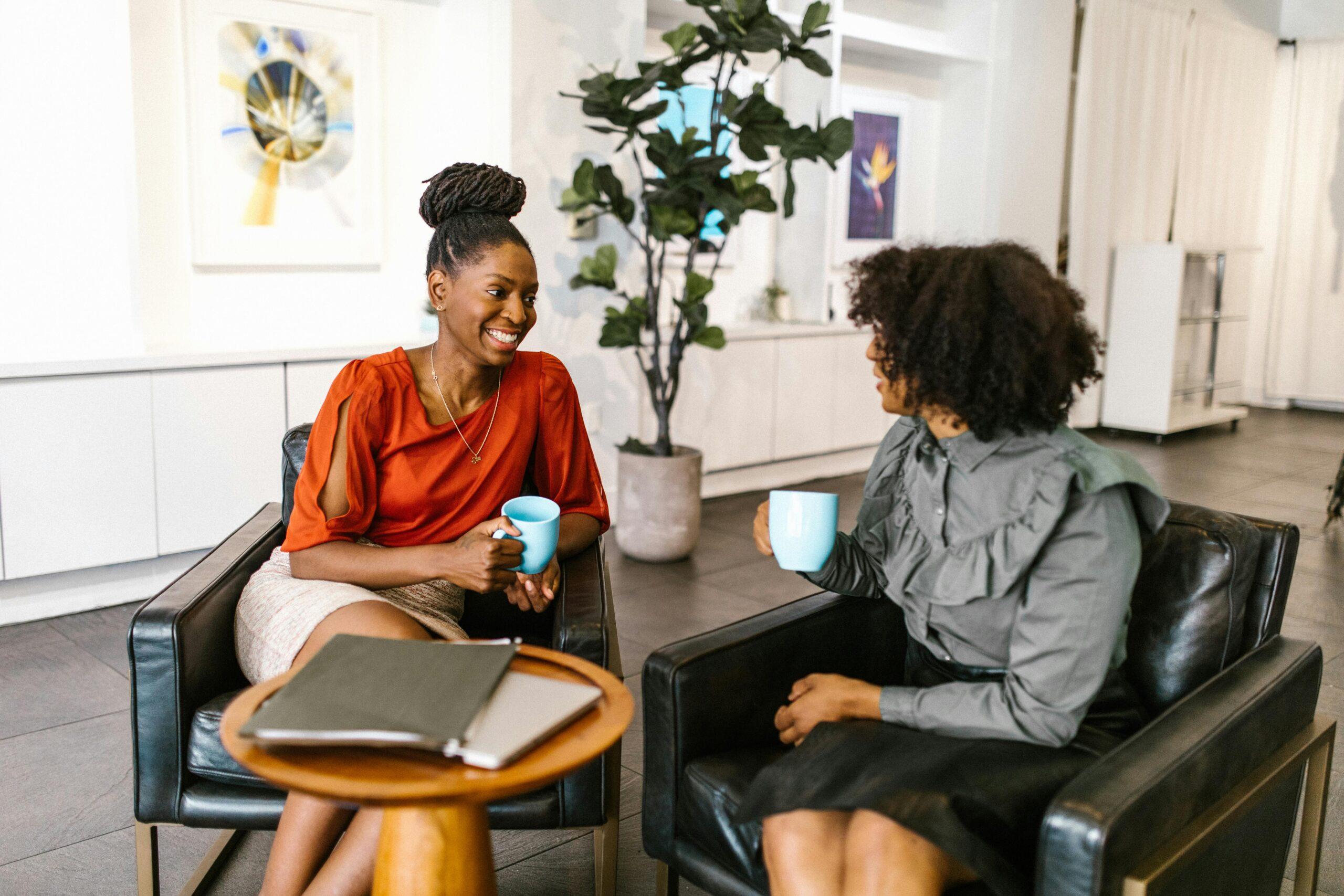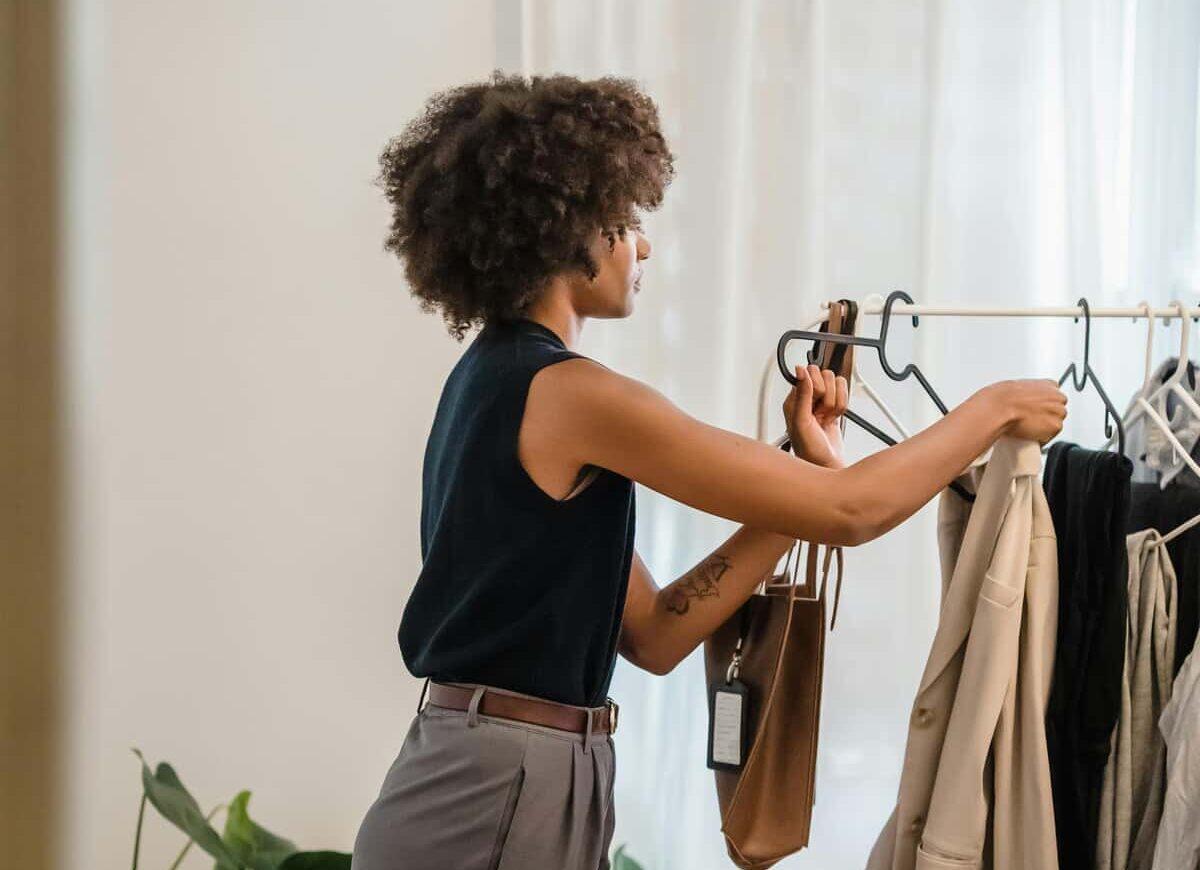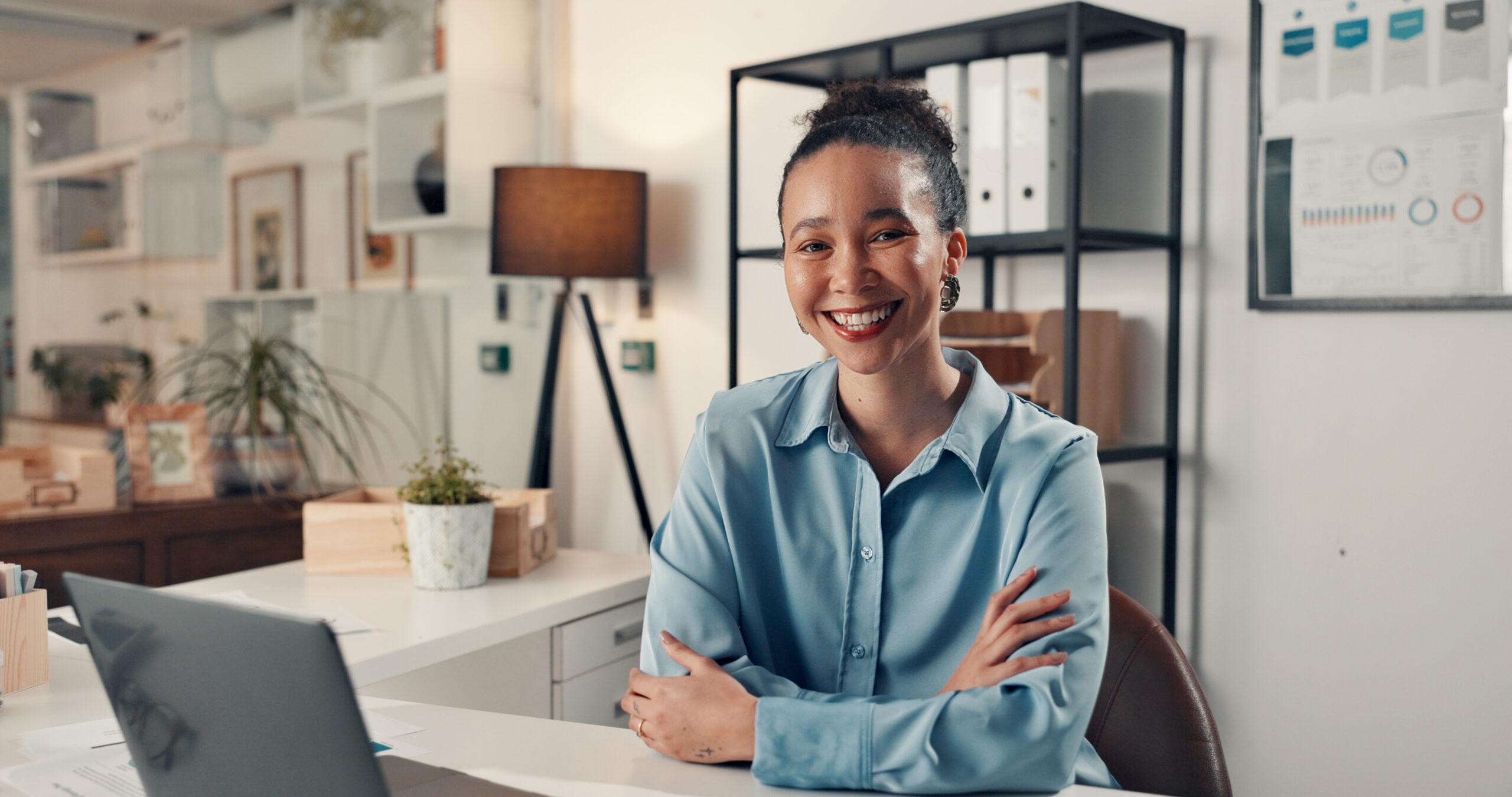On the surface, Saada Ahmed has a job that doesn’t seem real. As the co-founder of Everyday People, she plans parties and brunches for a living.
But she’s figured out how to turn the brunch series into a brand and ultimately a business that makes sense. If you take a closer look, you’ll see what Saada built is more than a brunch.
Launched in 2012 in a hotel in LES with just few friends and “friends of friends,” EP has evolved into a global in demand cultural experience. She along with her team (consisting of DJ Moma, Chef Roble Sinclair Bolden and photographer Kadeem Johnson) now collaborate with companies and brands like HBO, BET, and ESSENCE and even the U.S. Open.
Saada didn’t just wake up one day and start doing this. After graduating college in 2009 with a degree in economics, she found herself in New York City not quite knowing what she wanted to do. However, what she did know is that she did not want to do anything connected with her degree. During her first week in New York, she met someone at a party who helped her land her first internship in advertising at an agency and she started to move forward in a direction that felt closer to what she wanted to do. She went on to land gigs at Phillip Lim and Saint Heron.
In 2012, after a trip back home to Kenya, she had an aha moment that led to the creation of Everyday People. Shortly after, in 2014, she left her job to focus on EP full time. Her path was not straight forward, and it’s still evolving. Read our interview to learn more about Saada’s story from college to creating the life she wants on her own terms in New York City.
Her Agenda: Please introduce yourself and tell people who might not know you about what you do?
Saada Ahmed: I am the co-founder of Everyday People which began as a day party and has evolved into not only day parties but cultural events. We have now branched out into other cities and countries. I do other events as well like Hot Pepper Jelly formally known as Molasses Mondays which is a once a month event in Brooklyn where we have live music and different artists jam out. The other event I do is in Brooklyn is Brothers and Sisters at MoCADA, it’s a remix to the Harlem Renaissance salons, we have different themes and discussions with the moderator.
Her Agenda: What’s your main focus in terms of Everyday People?
Saada Ahmed: My main focus is just bringing people together and making them feel comfortable and having an open space for dialogue and creativity. Just beautiful Black people getting together.
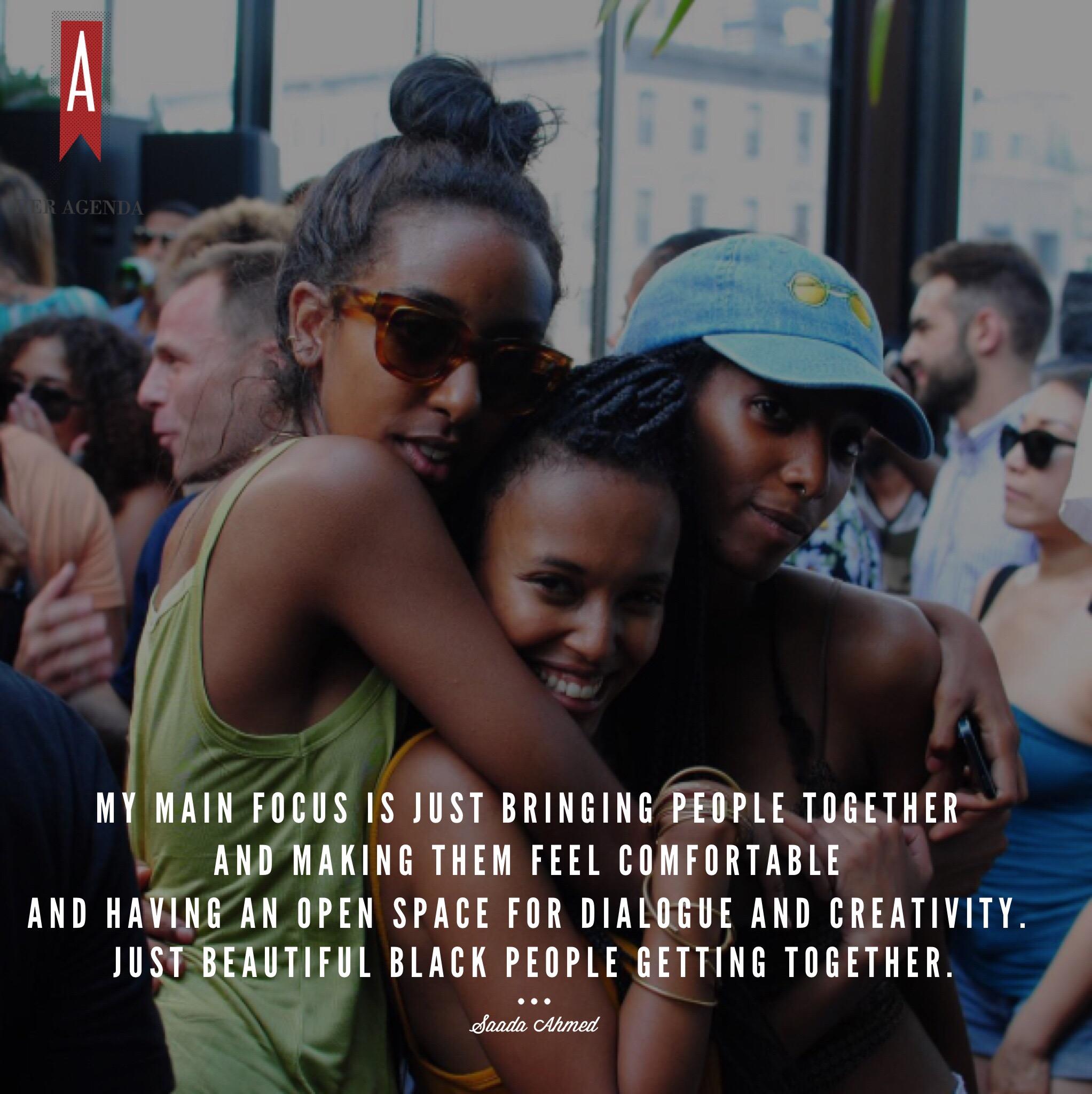
Her Agenda: How did you get started? What was the beginning like?
Saada Ahmed: Well, in 2012 I was living in New York and I felt like I was making a lot of lateral moves and I didn’t really know what I wanted to do, I didn’t really have any direction. So, I went away to visit my family in Kenya for a few months. I had some time to regroup and think and not have any distractions and I realized I wanted to do a daytime event where people could get together and actually have conversations unlike a nightclub where it’s so loud and people are intoxicated. An event where Black people especially, people of color could get together. So I reached out to a few DJs. Moma said he could do it and he found a venue for us and then we decided we wanted a guest host so we brought on Roble who is a chef and then he joined our team and the rest is history. We started off at the Rivington Hotel which was like 100 people which is just friends and friends of friends and now it’s grown to up to 1000 people at our event.
Her Agenda: Why do you think it’s so popular and thousands upon thousands of people look to it? You can post an invite or flyer today and you know there will be about 1000 people tomorrow. That’s not easy.
Saada Ahmed: It’s an easy going vibe, it’s not pretentious. I know people get really upset on our social media that we don’t post our location and so they’re like it’s not fair to people, why don’t you tell everyone where it is? It’s because there’s a lot of things that happen in the neighborhood where we have to be careful about a crowd of people being outside and have some sort of control. [Everyday People] is a fun environment where you get to dance, you get to network and there’s people from all sorts of walks of life. You can be a truck driver, you can be an artist, you can be whoever.
Her Agenda: You said, you just hit up DJ Moma, you just hit up chef Roble, he joined the team. What was the process before that? Obviously you had relationships or connections with these people. How did you develop those relationships and how did you get them to come on board?
Saada Ahmed: With everything you do in terms of networking it has to come from a genuine place of respecting what that person does and wanting them to be a teammate. Moma, I had been to his parties a lot before I decided to ask him and I just loved everything he did. If you see someone being passionate about something as much you are, you want them to join your team.
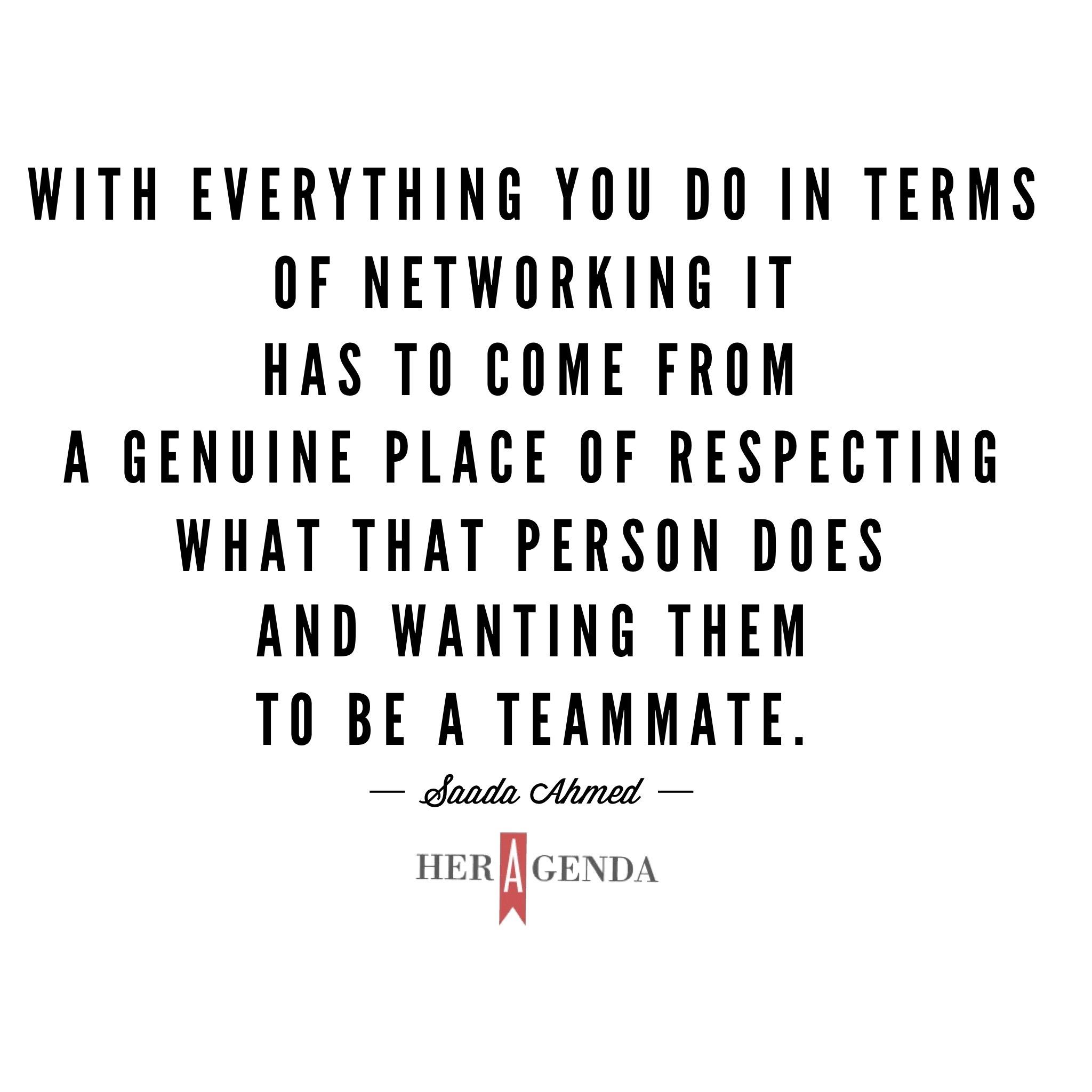
Her Agenda: What were you doing before launching Everyday People?
Saada Ahmed: I’ve done it all, it’s New York City. I’ve passed out balloons in the street. I’ve worked at a toy store I worked a Phillip Lim, I worked at different spots. My last job was at St. Heron and I did events there too and I did project management for their album and their site. After that, I just decided to work on me and do events.
Her Agenda: What was you first break or opportunity that put you on the path to where you are now?
Saada Ahmed: My first week in New York, I went to the PS1 warm up parties and it was the most amazing thing I’d seen. I’d just come from Boston, straight from college, straight to New York. I lived in the Bronx with my aunt. I didn’t know what I wanted to do. [I graduated from] Sussex University, and studied Econ, [but] I decided I didn’t want to do anything in Econ. I wanted to do advertising. So the next day I went to Moma’s party, I didn’t even know who Moma was at the time and this guy came up to me and said ‘oh, I saw you at the party; and I’m like ‘how do you know that was me?’ At the time I had a huge afro. He asked what are you doing here I told him I want to work in advertising and he said, ‘oh, do you know anyone?’ He said, ‘well, I work for an agency, do you want an internship?’ To me that was the breakthrough like, ‘wow, you can just talk to someone and get a job’ I’d been scouring the internet to find an internship and I just went out and some guy approached me and I got this internship. It was amazing because it was casting for Calvin Klein’s men’s underwear. I was like, I love New York. Every day I am still figuring it out. It might seem like I have my shit together but I’m still trying to understand where I am going and my trajectory.
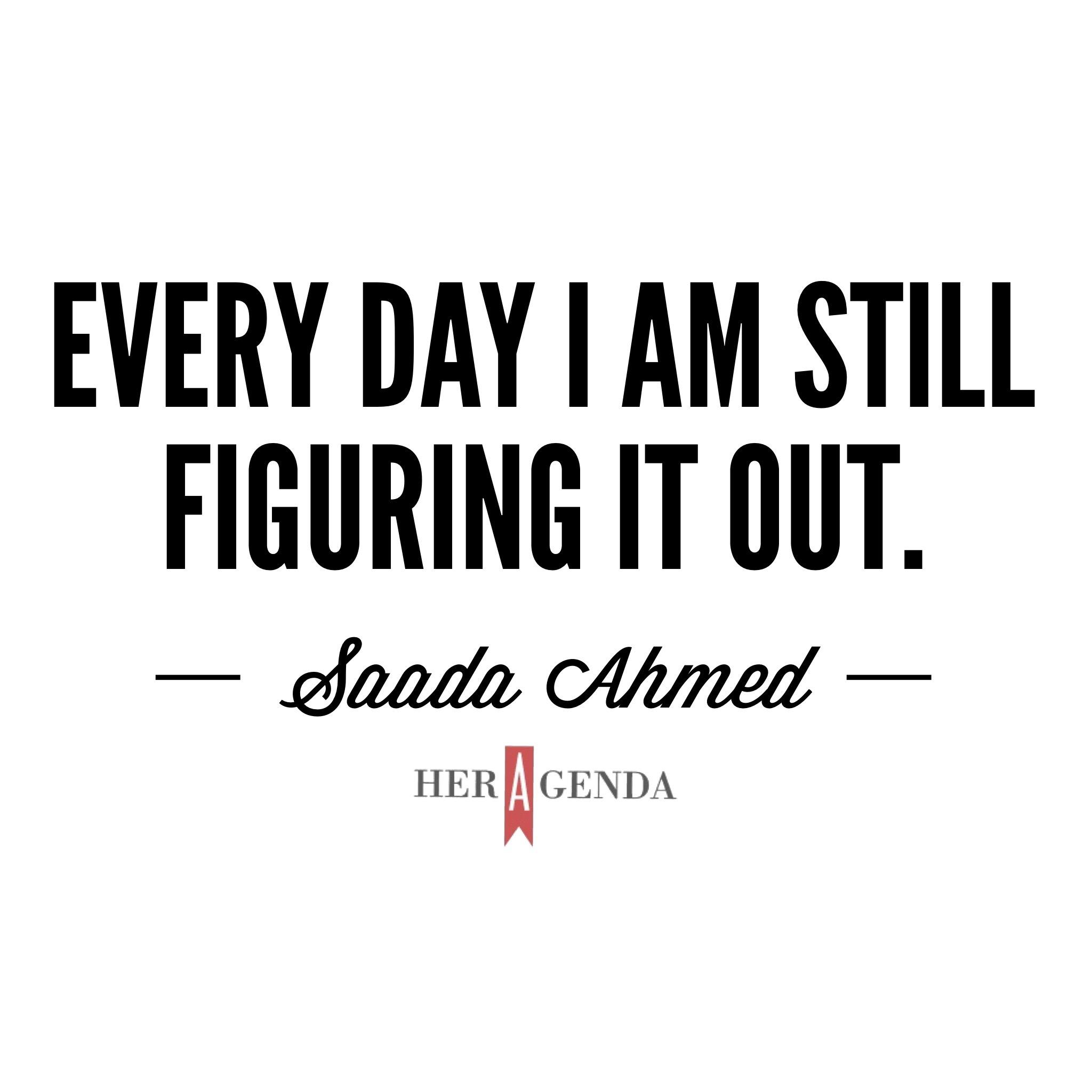
Her Agenda: Who helps you? Who do you have that you look up to that gives you advice about what you should be focused on or helps you navigate through different situations?
Saada Ahmed: My cousin Ayan has definitely helped me think in a very different perspective. After every event, she makes me recap about what went well and what didn’t go well. She really helped. Also, working with the guys who are a little older than me. Moma comes from a corporate background and has amazing business acumen. Seeing that structure and just Roble, how he networks and how he got to where he is through creating genuine relationships and being himself.
Her Agenda: You’ve built a lot of great relationships and make it come together organically, where it doesn’t seem forced.
Saada Ahmed: I never ever want to force anything. Nothing will ever come into fruition if that’s the case.
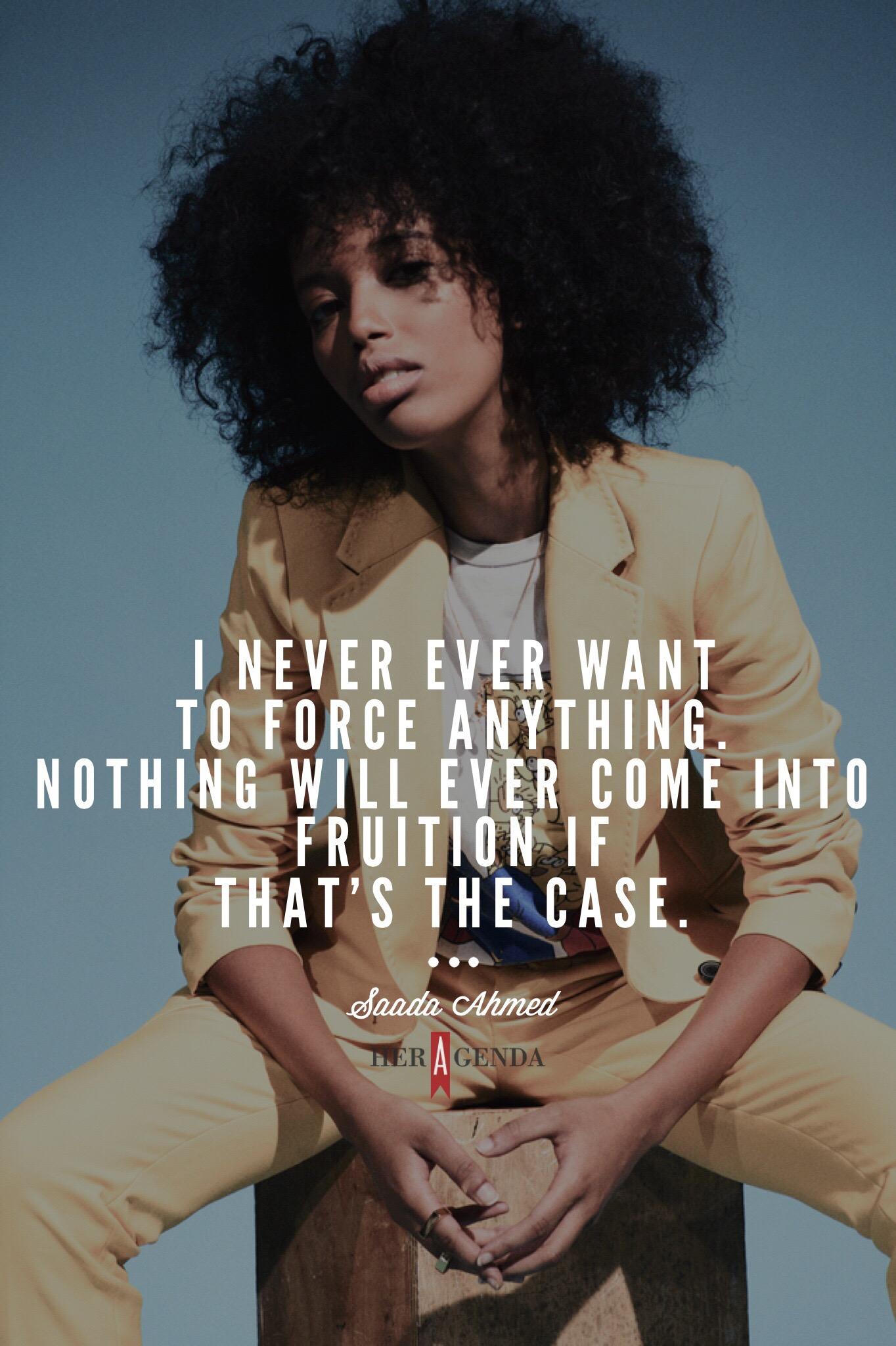
Her Agenda: Is there someone that you look up to? Like the ultimate role model?
Saada Ahmed: I really look up to Beverly Bond from Black Girls Rock. She really inspires me. I have a funny story where her and Bevy Smith were at the [Everyday People] brunch. Moma or Roble always get on the mic, [but] I have stage fright. Even coming to this interview–I don’t like talking, public speaking [but] it [was] a Black Girls Rock event. [So] they said ‘you have to talk, you’re the Black girl of the group!’ I told them I didn’t want to. Then Beverly and Bevy were like: you have to be the voice because you will be erased as a woman in the future. You need to show your presence because it’s going to inspire other women. I really look up to them because it’s hard. You want to powerful and you want to stay strong, but you also want to stay humble. It’s a weird line to balance.
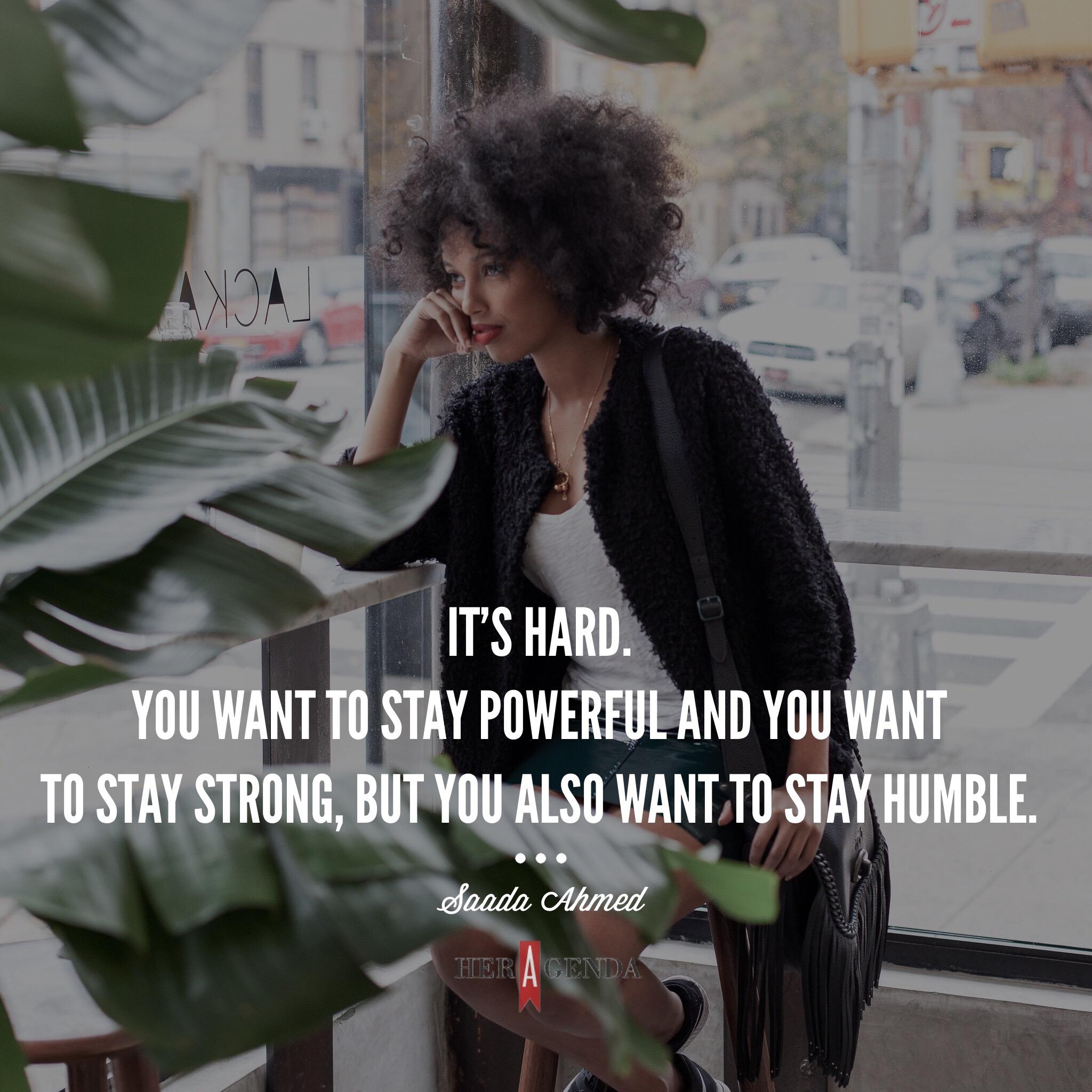
Her Agenda: What do you tell yourself in those moments?
Saada Ahmed: Recently I started meditating and really just getting out of my head. Really learning and understanding what I’m talking about. It’s easy talking about myself, but whatever you’re talking about just own it. Know it back to back, then there’s no room for mistakes.
Her Agenda: Do you have any advice when it comes to mediation?
Saada Ahmed: I think that you should definitely go on YouTube. There are guided meditations so it helps you. It’s not just sitting in your room trying to clear your thoughts. That will not work. Listen to guided meditations. There’s apps, there’s HeadSpace or you can go to mediations at yoga studios.
Her Agenda: Can you walk us through a day in the life? How do your days usually flow?
Saada Ahmed: It depends. Every day is literally different. An average Everyday People day…I wake up, I try to work-out, eat well. Either Mo comes to Brooklyn and meets with us and we meet at a café and work or we come to the city and meet with him. If we have a deck to do we just bang one out together, we get together and discuss ideas. Mostly day to day we take a lot of conference calls, I take a lot of meetings and I try to fit in some creative time in there.
Her Agenda: What’s are you working on next that you’re most excited about?
Saada Ahmed: I’m most excited about making an app incorporating all of the things we enjoy…a lifestyle app so music, food, health…encompassing all of that.
Her Agenda: What’s the most unexpected thing you’ve had to do as a founder that you had to learn?
Saada Ahmed: Public speaking, learning about how production and how things run and learning how to make a deck. I hate making decks, but that’s how you make money and get your sponsorships. I asked so many people how to do it and then finally did it for myself. It is easier now that I know the process. When it comes to decks you have to have the creative brainstorm and that’s the hard part is figuring out what works best for the event or a brand.
Her Agenda: Can you talk about your team and who helps you?
Saada Ahmed: It depends on the event, but our core team is me Roble, Moma and Sinclair Bolden. Kadeem [Johnson] is the most talented photographer. He captures the essence of the party. He’s @kjohn_lasoul if anyone wants to follow him on Instagram. A lot of the greatness that comes out of the photos are the people and their creativity and their beauty.
Her Agenda: What do you do for the team?
Saada Ahmed: I generally like working for the creative side, so like booking a guest host. We all take turns, no one does one role, but Roble is good at food and Moma is good at what he does, music. I help out with booking sometimes for the DJ’s, but everyone has their hands in something.
Her Agenda: What would be your advice to someone who is struggling and really wants to turn their passion into a career?
Saada Ahmed: You should talk it out with people that you trust and reach out to people that have expertise in the realm of whatever you’re trying to do. Get their advice, find a mentor, I am lucky enough to work with people who have experience so they’ve guided me.
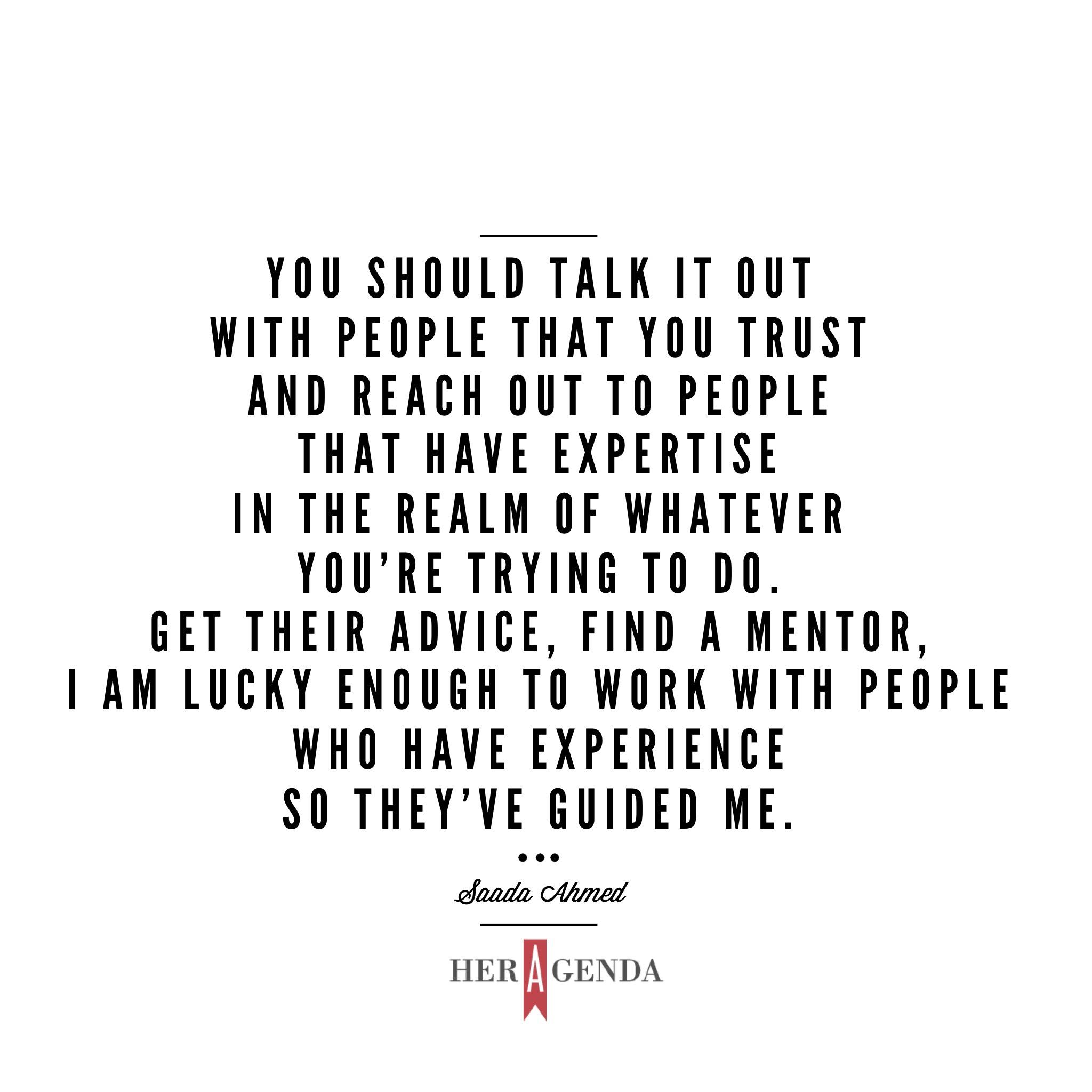
Her Agenda: Do you have a personal motto?
Saada Ahmed: Mainly it’s just relax. I have a lot of anxiety most of the time and I think I just need to relax and live in the moment. There’s this saying that says if you’re depressed you’re living in the past and if you’re anxious if you’re living in the future so live in the present.
Her Agenda: Is that what keeps you calm right before an event?
Saada Ahmed: Yeah, definitely. Shit happens and you just have to learn how to roll with the punches. That’s the same thing with life, you can’t let one thing ruin everything. You just have to keep going.
[Editor’s note: This feature was published on October 24th, 2016 and has been edited for length and clarity.]

